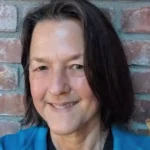


EMDR Basic Training Part 2, Day 2
Information
Date & Time
-
-
Learning Objectives
Participants will be able to:
-
Describe 3 types of interweaves.
-
Describe 1 or more reasons why interweaves are needed and when they are needed.
-
Identify and describe 2 strategies for dealing with dissociative symptoms.
-
Describe how to apply Adaptive Information Processing to the treatment of compulsive disorders.
-
Identify 2 resources to use with resistant clients.
-
Identify one modification to standard protocol used in working with children.
Educational Goal
The educational goal of this workshop is to increase knowledge about EMDR Therapy.
Description
This session will cover:
- – Trauma
- – Cognitive Interweaves ACE Study
- – Special Populations
- – Facilitator-led group discussion
- – Case conceptualization and cognitions
- – Practice time!
Target Audience
- Addiction Professional
- Counselor
- Marriage & Family Therapist
- Psychologist
- Social Worker
Presenters

Carol Miles, MSW, LCSW, EMDRIA-approved Basic Trainer and Consultant, is a clinical social worker specializing in individual psychotherapy and maintains a private practice with adolescent and adult clients. She also provides training and consultation for therapists developing skills in Eye Movement Desensitization and Reprocessing Therapy (EMDR Therapy) under her Three Rivers Training Center. Most of her training and therapy have been virtual since March 2020. She currently specializes in offering intensive EMDR Therapy to address trauma and healing.
A graduate of the LSU School of Social Work, Carol specializes in Clinical Social Work, with over 30 years of experience as a social worker in clinical, administration, and marketing with the public and private sectors. Among her areas of expertise are working with clients who have eating disorders and trauma. She is certified in EMDR Therapy (Eye Movement Desensitization and Reprocessing Therapy) by EMDRIA (EMDR International Association) and has additional training in DBT (Dialectical Behavioral Therapy). Carol has often presented at statewide conferences and to general audiences on topics ranging from Eating Disorders, Assertiveness, EMDR Therapy, DBT, and Developing a Private Practice. She taught as an adjunct professor at the Tulane School of Social Work from 1998-2018.
Additionally, she is an EMDRIA Certified Therapist, an EMDRIA Approved Consultant, and an EMDRIA Approved Provider of EMDR Therapy Training. She has been a member of EMDRIA since 2008, shortly after being trained in EMDR Therapy in New Orleans. As a volunteer for EMDRIA, she served as a member and co-chair of the Conference Committee and chair of the University Special Interest Group. She founded and is the Regional Co-Coordinator of the South Louisiana EMDR Network, stepping down in 2022. In 2017, she was elected to serve on the EMDRIA Board of Directors, 2017-2021. She served a 2-year term as the President of EMDRIA, 2019-2020.

Hope Payson, LCSW, LADC, is a Licensed Clinical Social Worker, Alcohol and Drug Counselor, and an EMDRIA-approved consultant who specializes in the treatment of addiction and trauma. She is licensed in the State of Connecticut. Hope has over 30 years of experience working in various community mental health and addiction treatment settings and has presented at a wide range of conferences within the US and internationally. She coordinates a group private practice in Connecticut and provides training and consultation services to clinicians in private and community settings. Hope is actively involved in helping addiction-focused treatment programs integrate EMDR therapy throughout all phases of their programming. She is also the Producer of the documentary “Uprooting Addiction: Healing From the Ground Up.” Hope has personally experienced the negative impact of intergenerational trauma and addiction. While this experience alone has not made her an expert in addressing these issues with others, it has been the driving force behind her clinical training. She says her most robust learning experiences have come from her clinical work and the therapists who seek her consultation services. What does this mean for the people she serves? She approaches individual therapy, consultation, and training with passion, curiosity, hard work, partnership, hopefulness, and solid ethics. Her approach is person-centered, down to earth, and grounded in evidence-based clinical training, so EMDR Therapy is her therapeutic modality of choice. She is excited about the opportunity to help other therapists learn about it.
Financially Sponsored By
- Three Rivers Training Center